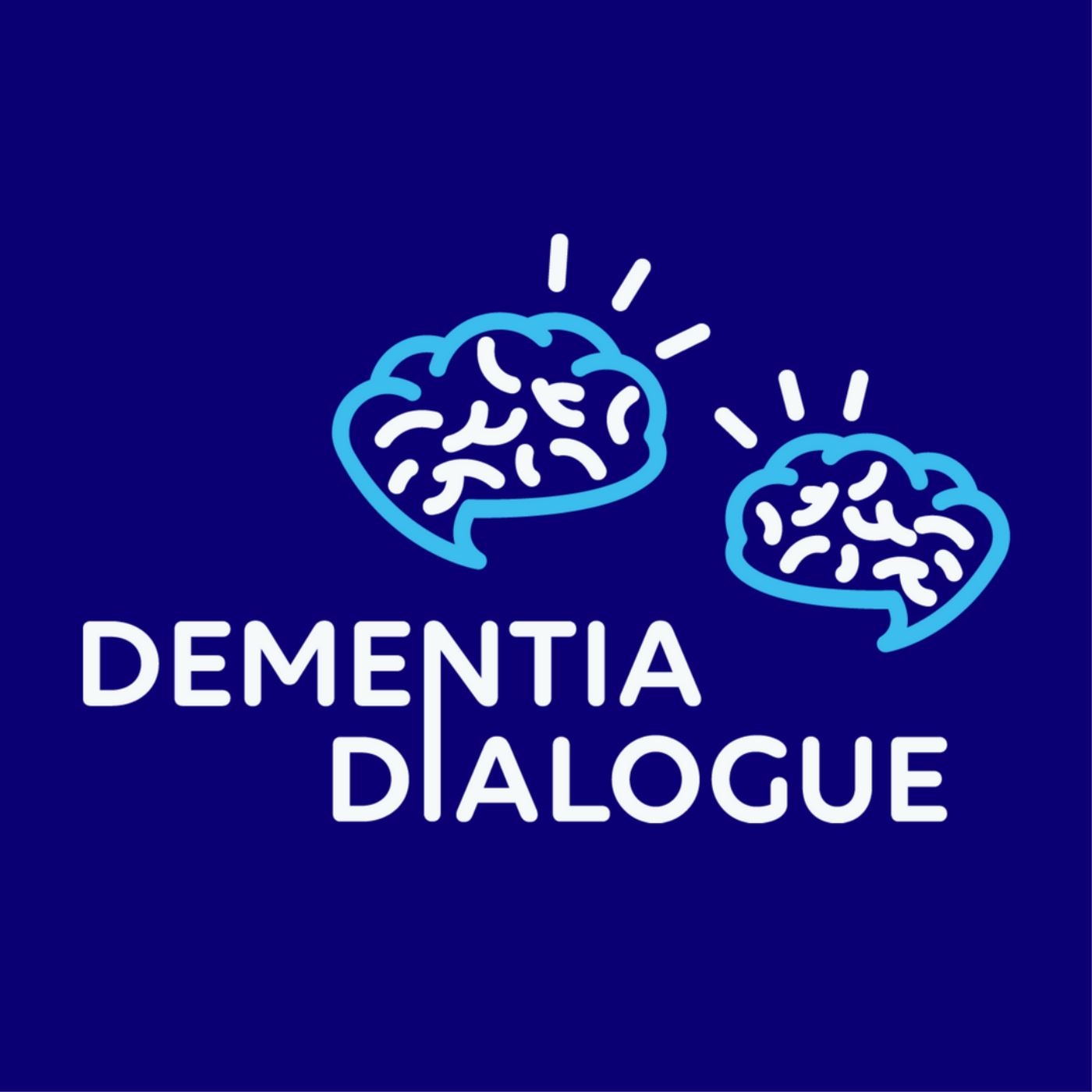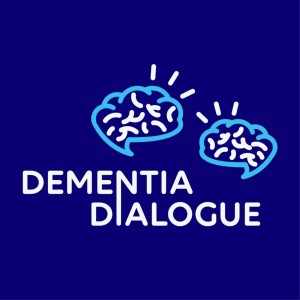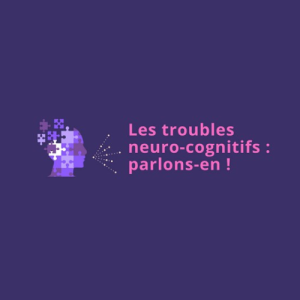
Check out www.dementiadialogue.ca Our podcasts feature people with dementia, their care/life partners, and supporters sharing experiences. They demonstrate their capacity to live fully and enable peer listeners to understand and gain insight and strengthen their adaptive skills. Episodes also enhance understanding within the broader community of what it means to live with dementia.
Episodes

Tuesday Feb 21, 2023
Season 5: Episode 57- Community engagement- Safety in numbers
Tuesday Feb 21, 2023
Tuesday Feb 21, 2023
In part 1 of a two-part series, Lisa Loiselle speaks to Alison Phinney, PhD RN, and Lynn Jackson, RN, a person with lived experience of dementia. They work on the Building Capacity Project, a partnership between researchers at the University of British Columbia and Lakehead University, and the Westside Seniors Hub in Vancouver and the North West Dementia Working Group in Thunder Bay.
Alison is from New Brunswick and now lives in British Columbia and has been doing research together with people with dementia for 30 years. As a nurse, she became very curious about what their experience was like because it was very hard for them to tell her. That curiosity and commitment have stayed with her.
Lynn grew up in Vancouver but now lives in Sydney, BC. Twenty-two years ago, she was diagnosed with Frontal temporal dementia (FTD). Since then, she has been engaged in advocacy work with people living with early stages of dementia, and is as busy as ever!
Links to
https://www.buildingcapacityproject.com/
https://www.flippingstigma.com/

Tuesday Feb 28, 2023
Saison 2 Episode2: Canada Proche Allié Alzheimer
Tuesday Feb 28, 2023
Tuesday Feb 28, 2023
Dans cet épisode, Dre Nouha Ben Gaied – Directrice en recherche et développement et qualité des services à la Fédération québécoise des Sociétés Alzheimer – nous parle du projet Canada proche allié Alzheimer.
Ce projet, qui a pour but de favoriser l’inclusion des personnes atteintes de troubles neurocognitifs dans nos communautés, est un partenariat entre les Sociétés Alzheimer du Canada, de la Colombie-Britannique, de la Saskatchewan et de l’Ontario.
Cliquez sur le lien ci-dessous, si vous souhaitez en apprendre plus sur le projet Canada proche allié Alzheimer!

Tuesday Mar 14, 2023
Tuesday Mar 14, 2023
In the second part of the Community Engagement series, we meet Andréa Monteiro, a researcher, educator, nurse, documentary filmmaker and social justice advocate. Her father lived his final years with dementia. As the community research coordinator, Andrea walked alongside community partners, witnessing, dialoguing, and serving as a sounding board for different communities and groups discussing inclusion and witnessing questions that are unique to each. Andréa shares her experience working with communities and some challenges she witnessed.
https://www.buildingcapacityproject.com/
https://www.flippingstigma.com/

Tuesday Apr 04, 2023
Tuesday Apr 04, 2023
Lisa Loiselle speaks with Laura Middleton and Bill Heibein about the DREAM (Dementia Resources on eating, activity, and meaningful inclusion) project. Laura Middleton is an Associate Professor at the University of Waterloo whose work looks at the role of physical activity and other lifestyle strategies like healthy eating, and social engagement in promoting the well-being of people living with dementia, as well as reducing the risk of dementia..
Bill Heibein has lived with a diagnosis of dementia for 24 years. He lives near Thunder Bay and owns and operates a farm. He has been involved in many research projects with various universities and researchers. Bill decided to get involved in the DREAM project because of his interest in items like physical activity. Bill believes that physical activity is the reason he continues to live well with dementia.
Resources:
www.dementiawellnesscanada.com
Laura Middleton's contact info - lmiddlet@uwaterloo.ca

Tuesday Apr 11, 2023
Tuesday Apr 11, 2023
Native de l’Abitibi-Témiscamingue dans la province de Québec, Annie Bourret habite en Colombie-Britannique depuis près de 30 ans.
Au printemps 2019, la mère d’Annie, l’autrice québécoise Anne-Michèle Lévesque, subit un AVC qui la laisse avec des séquelles : des troubles de mémoire, perte de langage, fatigue mentale et physique. Elle quitte donc le Québec et s’installe chez sa fille à Ashcroft en Colombie-Britannique. Son état de santé se détériore rapidement, les problèmes s’accumulent; si bien qu’en juin 2020, Mme Lévesque demande l’aide médicale à mourir. Annie doit maintenant accompagner sa mère dans ce processus.
Ensemble, nous avons parlé de son expérience en tant que proche aidante et du chemin qu'elle a parcouru avec sa mère à partir du moment où cette dernière a demandé l'aide médicale à mourir.
Lien vers la Biographie et photo d’Annie

Monday May 15, 2023
Season 5: Ep. 60 Dementia Sisterhood
Monday May 15, 2023
Monday May 15, 2023
After listening to a group of women living with dementia talk about their group, Dementia Sisterhood, if you are interested, contact Dr. Elaine Wiersma at ewiersma@lakeheadu.ca. They meet virtually via Zoom to share their lives, support one another and derive encouragement from the solidarity they experience
You may want to check out our series on Women & Dementia https://www.dementiadialogue.ca/women--dementia and listen to other episodes on this theme and check out the resources below
A short video called “Women with Dementia Living Strong”
https://www.youtube.com/watch?v=aG8BKSyFUK0
Bamford, S. (2011). Women and dementia—not forgotten. https://ilcuk.org.uk/wp-content/uploads/2019/01/Women_and_dementia.pdf
Alzheimer Society of Canada
https://alzheimer.ca/on/sites/on/files/documents/2015%20Media%20Releases-.pdf
Alzheimer Society UK—Why is dementia different for women?
https://www.alzheimers.org.uk/blog/why-dementia-different-women
Alzheimer Disease International—Women and Dementia: A Global Research Review
https://www.alzint.org/resource/women-and-dementia-a-global-research-review/

Monday May 29, 2023
Les défis de la proche aidance à distance
Monday May 29, 2023
Monday May 29, 2023
Comment aider un proche atteint d’un trouble neurocognitif majeur quand on habite à plus de 5,000 kilomètres dans une région éloignée des grands centres urbains? Pour en apprendre plus sur cette problématique, j’ai interviewé deux Yukonnais : Sandra St-Laurent et Paul Davis.
Sandra est Québécoise de naissance et Franco-yukonnaise d’adoption. Elle est arrivée au Yukon, il y a plus de 25 ans, et est tombée en amour avec la région et ses habitants. Sandra a été proche aidante à deux reprises. La première fois, c’était il y a environ 17 ans, lorsque son père a reçu un diagnostic de cancer, et plus récemment pour sa mère qui est décédée en juillet 2022 de la maladie d’Alzheimer.
Paul Davis, quant à lui, s’est établi au Yukon en 1995. Après plusieurs années dans la fonction publique et l’enseignement, il se dévoue maintenant à la réalisation de courts métrages. Son dernier film, Le Loon Ranger des huards, a été présenté récemment au Dawson City International Short Film Festival ainsi qu’au Festival international du Film francophone de Toronto. Bien qu’il ait grandi dans une famille anglophone, Paul porte un grand amour pour la langue française qu’il étudie depuis sa jeunesse. Malheureusement, Paul et moi avons eu quelques problèmes techniques lors de notre conversation qui ont grandement affecté la qualité sonore de l’entrevue.
Sandra St-Laurent est la Directrice du Partenariat communauté en santé au Yukon.
Gestionnaire et artiste en creation littéraire, elle aime mettre à profit ses connaissances dans des milieux dynamiques favorisant la créativité et se démarquant par l’excellence et le souci d'intégrer les meilleures pratiques et l'innovation.
Au niveau de la création littéraire et des projets d'arts visuels, elle aime participer à des projets stimulants qui font appel à la créativité et la collaboration, permettant la rencontre avec d'autres artistes et auteurs du milieu.
Ses spécialités incluent la santé publique; la promotion de la santé; le genre et le développement; le développement local et international; les expositions collectives visuelles; la redaction et la publication de nouvelles (adultes, jeunesse) et le haiku ainsi que la redaction et la publication de contes pour les enfants et les jeunes.
Paul Davis est un artiste en arts médiatiques qui habite à Whitehorse au Yukon. Vous pouvez le rencontrer à pied, à vélo, et en canot!

Tuesday Jun 06, 2023
Rainbow Wing in LTC and Emotion Based Care for 2SLGBTQ Residents
Tuesday Jun 06, 2023
Tuesday Jun 06, 2023
In this episode, Pat Shanahan speaks with Barbara Machalik and Mary Connell. Barbara is the Executive Director of Academics, Community Relations and Programming at the Long Term Care homes operated by the Rekai Centres at Wellesley Central Place and Sherbourne Place in downtown Toronto. Barbara tells us about the planning and launch of the Rainbow Wing at their Wellesley location in 2022. The Wing is a pod of 25 resident rooms for members of the 2SLGBTQ communities but contains common space available to all the residents of the facility who are allies or are also members of the 2SLGBTQ communities.
Mary is a consulting nurse who specializes in the area of emotion-based care and client centred care especially for those experiencing dementia. The Rekai Centres have been working with Mary to train staff and assist the staff developing care approaches that respond to the individual residents, their lives and familiar activities to reduce anxiety. Mary shares examples and stories of how emotion-based care is being used to care for members of the 2SLGBTQ communities who are experiencing dementia.
The following resources can be read/viewed found through links www.rekaicentres.com
Many LGBTQ seniors entering long-term care hide their identities. The ‘Rainbow Wing’ aims to change that | The Star
Long-term care home unveils 'Rainbow Wing' for LGBTQ2 residents in Toronto | CBC News
Is this the future of queer elder care? | Xtra Magazine
Other Cities Have Housing for Queer Seniors. Why Not Vancouver? | The Tyee
Rainbows to welcome everyone at Rekai Centre Toronto - YouTube

Tuesday Jun 13, 2023
Tuesday Jun 13, 2023
Pour ce dernier épisode de notre deuxième saison, nous avons eu une conversation fascinante sur les nouveaux modèles de résidences pour aînés vivant avec un trouble neurocognitif majeur avec le professeur Philippe Voyer.
Comment est-ce qu’on peut repenser nos modèles de résidences pour les rendre plus accueillantes pour les aînés atteints de trouble de mémoire et leurs familles? Quels sont les détails auxquels il faut penser lors de la planification des différentes pièces qui composent une résidence pour aînés vivant avec un trouble neurocognitifs majeur? Quelle est la satisfaction du personnel soignant qui travaille dans ces nouveaux milieux?
C’est ce que nous apprenons dans le balado qui suit!
Philippe Voyer, inf., Ph.D. est professeur titulaire et Vice-doyen aux études de premier cycle et à la formation continue de la Faculté des sciences infirmières de l’Université Laval. Dans le cadre de ses fonctions, monsieur Voyer s’implique dans l’enseignement et la formation continue, la recherche et la pratique clinique. Il est l’auteur de plusieurs livres utilisés au Québec et en Europe qui se sont mérités de prestigieux prix dont le Prix du ministre de l’Éducation. Il est le chercheur principal ayant créé l’outil RADAR permettant de détecter les signes du delirium (outil maintenant disponible en 7 langues (https://www.philippevoyer.org/radar-international). Il a aussi été l’expert mandaté par le ministère de la Santé et des services sociaux dans un projet vitrine visant à transformer des CHSLD classiques en CHSLD Alzheimer. Il était aussi membre du comité mandaté par le MSSS pour produire le Plan Alzheimer et a co-présidé la création des lignes directrices québécoises sur la prise en charge des SCPD. Il est conseiller aussi pour le ministère des Aînés et des proches aidants pour la réalisation des Maisons des aînés. Enfin, il a participé à la création des Maisons l’étincelle et Humanitae qui sont des milieux de vie pour la clientèle vivant avec la malade d'Alzheimer. Ces milieux novateurs ont permis de tester diverses technologies visant le bien-être et la sécurité des résidents. Pour plus de détails : https://www.philippevoyer.org/biographie

Sunday Jul 16, 2023
2SLGBTQI & Dementia:From Research to Action
Sunday Jul 16, 2023
Sunday Jul 16, 2023
Arne Stinchcombe chats with researchers doing work with lesbian, gay, bisexual, transgender, queer, and Two-Spirit (LGBTQ2S+) persons with dementia and carers. Jason Flatt is an Assistant Professor in the Social and Behavioral Health Program at the University of Nevada (Las Vegas) School of Public Health. Jason discusses how he got involved in dementia research and some of the concerns of 2SLGBTQI+ persons with dementia in their caregivers. He also makes the case for why sexual and gender diversity are important considerations within dementia research.
Celeste Pang (Senior Research Officer, Egale Canada) and Ashley Flanagan (Research Fellow, National Institute on Ageing) are researchers working on a Canadian research project involving LGBTQ2+ persons living with dementia and their unpaid carers in Canada. We discuss some of the findings from their research project and their implications.
Both interviews reveal a need for specific initiatives to respond to this community's needs, especially in regards to caregivers.
Resources:
https://open.alberta.ca/dataset/0432e7da-2884-4a39-8b17-6199cadd4b7b/resource/5aeb5c77-bd1f-4963-ae4c-893e7c738340/download/social-isolation-l
https://www.cmaj.ca/content/191/31/E851
https://xtramagazine.com/health/queer-trans-care-for-older-adults-18373
https://www.virtualhospice.ca/2slgbtq/
Resources for this episode can be found under the following sections on our resource page: LGBTQ2S+
